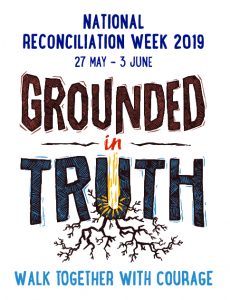
Penny Wright – Guardian and Training Centre Visitor
National Reconciliation Week (NRW) is a time for all Australians to learn about, and celebrate, our shared histories, cultures, and achievements and to explore the part we can each play in reconciliation.
Each year, this special week runs from 27 May to 3 June, commemorating two significant dates—the successful 1967 referendum that effectively granted Aboriginal people the right ‘to be counted’ in their own land, and the High Court Mabo decision.
This year’s theme Grounded in Truth: Walk Together in Courage, highlights the importance of truth-telling in fostering positive relationships between Aboriginal and Torres Strait Islander people and the broader community. To better understand each other, we must be willing to have—and encourage—honest and challenging conversations with each other and within ourselves.
That was certainly the experience of nearly 2000 South Australians at the NRW Breakfast hosted by Reconciliation SA on 27 May. It is the biggest event of its kind in Australia and in her keynote speech, Dr Chelsea Bond of the University of Queensland spoke unequivocal truth about power.
In our work, advocating for children and young people, there are many challenging conversations that must be had.
Across Australia, including in South Australia, Aboriginal children and young people continue to be disproportionately represented in youth justice and out-of-home care. In confronting this troubling situation, as well as the intergenerational trauma that brought us here, we must insist on the right of children to know their community and their cultural and spiritual identity. We must listen to, value and share the voices and stories of Aboriginal young people.
Residents of the Adelaide Youth Training Centre have expressed concern about the lack of Aboriginal staff and Aboriginal cultural programming. We will continue to advocate for this, as well as the appropriate placement of young people.
These three things must be key in the lives of Aboriginal children: culture, connection and community.
